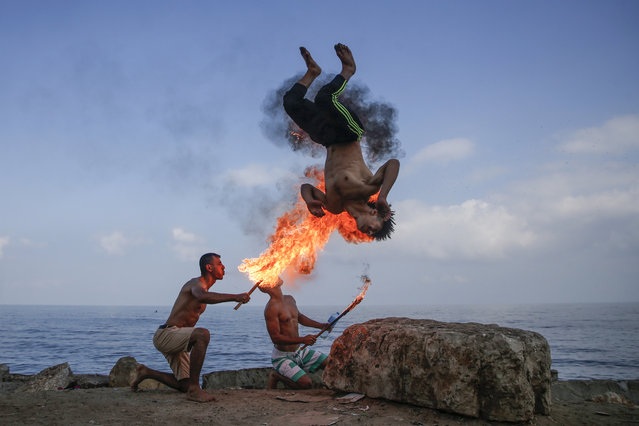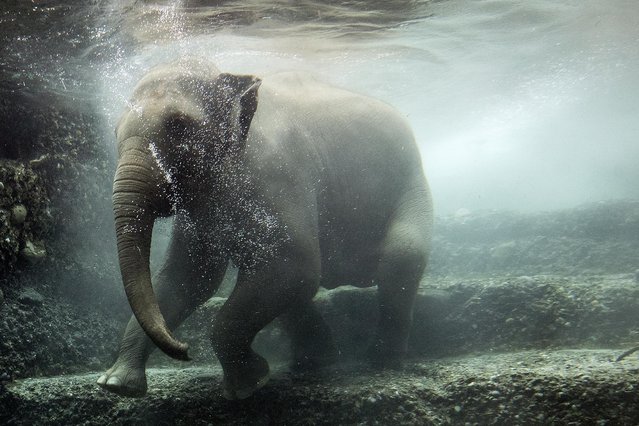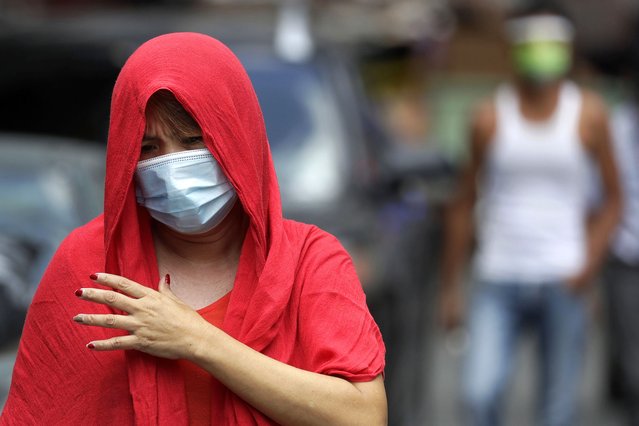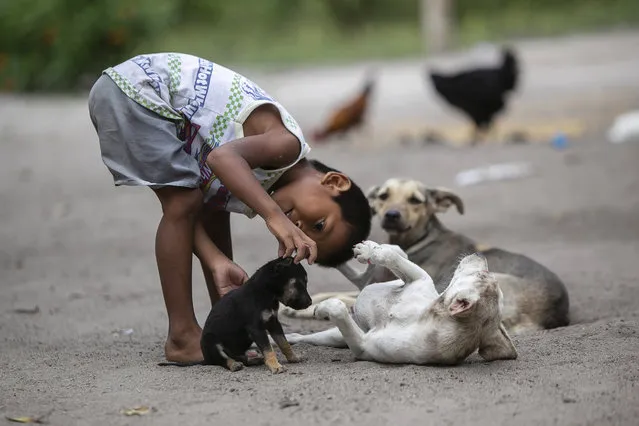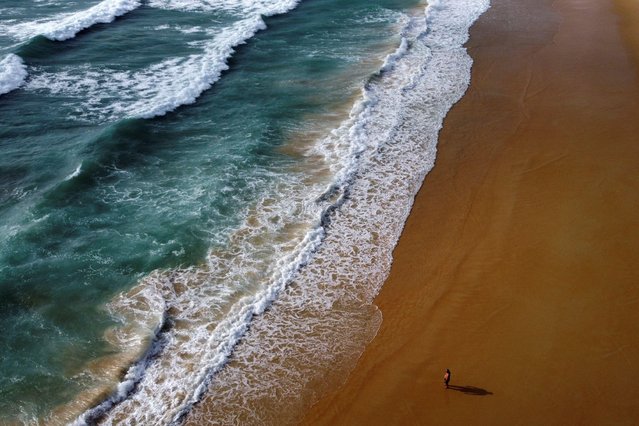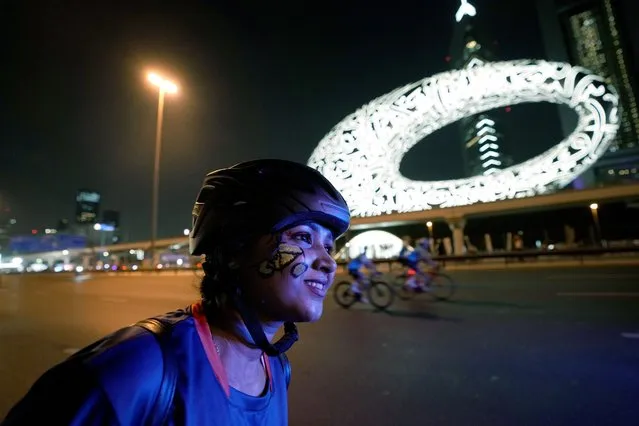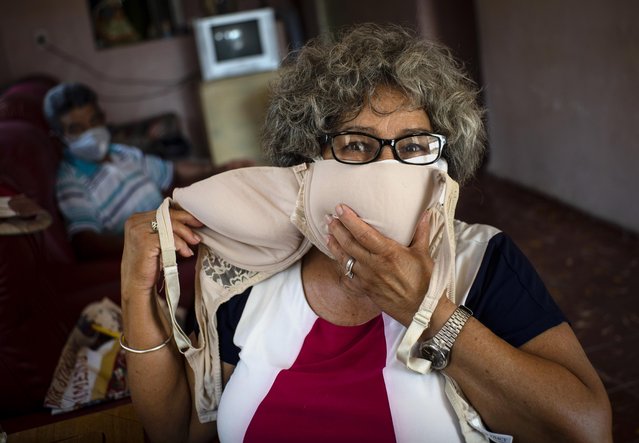
Idania Espanola, 63, poses for a photo showing a bra that she will adapt into two face masks, amid the spread of the new coronavirus in Cojimar, Cuba, east of Havana, Tuesday, March 31, 2020. (Photo by Ramon Espinosa/AP Photo)
03 Jul 2020 00:01:00,post received
0 comments

